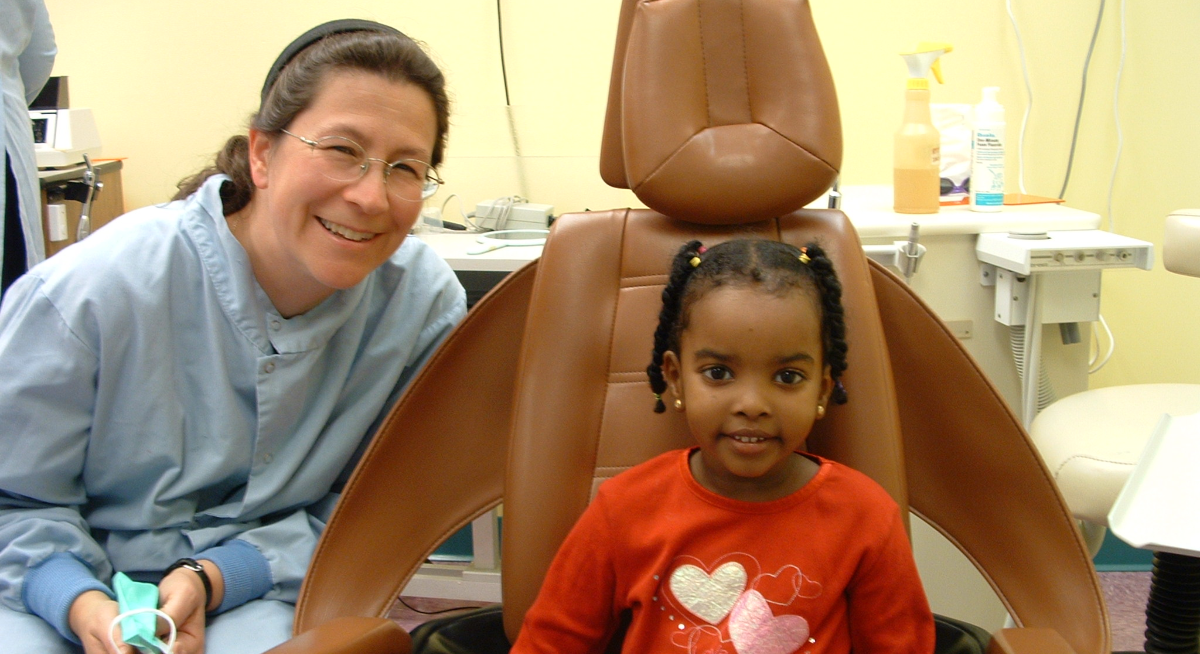
Federal and state leaders are increasingly recognizing dental therapy as a cost-effective solution to expand access to oral health care. In 2020, the first dental therapy program was accredited by the Commission on Dental Accreditation (CODA) of the American Dental Association, the body that accredits all U.S. dental education programs. More recently, President Biden has called for expanding the profession. And dental therapists are working or authorized in 12 states – with Oregon approving dental therapy just this year.
Given this momentum, Community Catalyst recently hosted a webinar offering lessons to advocates and policymakers who want to advance dental therapy. The central message echoed by all panelists was the value of following national standards to ensure dental therapy legislation promotes – rather than impedes – health equity and racial justice. Leaders can use CODA’s national education standards and other evidence-based guidance, such as the Model Dental Therapy Act (Model Act), when developing dental therapy policy.
Dr. Caswell Evans addressed the serious oral health inequities facing the U.S. today. “The portion of the population comparatively least in need of dental care receives the most care,” he noted, “while the portion of the population literally most in need of dental care receives the least…” Advancing dental therapy is an effective way to deliver care to those whom the dental system has left behind – Black, indigenous and other people of color; rural communities; and people with low incomes, among others. It’s designed as an accessible, community-driven profession in which dental therapists represent the people they serve.
However, some states have advanced rules impeding access to care or adding barriers to the most marginalized people from becoming dental therapists. Such policies limit equity and hinder diversity among oral health providers.
Dr. Evans chaired a consortium to create the Model Act to mitigate the harm of varying policies. Much like how CODA offers standardized, data-driven guidance for dental education programs, the Model Act can help state policy leaders use uniform, evidence-based guidance to ensure dental therapy policies meet their constituents’ needs.
Dr. Miranda Davis offered her perspective on successfully bringing dental therapy to Oregon. State efforts began in 2011 when the Legislature passed legislation authorizing dental workforce pilot programs. Two dental therapy pilots were eventually created, with one pilot focused on training dental therapists to serve tribal communities while the other educated dental hygienists in an expanded clinical role. Advocates identified several priorities for their state’s emerging policy, including using CODA’s education standards. These standards allowed both pilot programs to be effective, despite taking different paths to provide dental therapy.
Dr. Davis emphasized that CODA’s guidance “gives a really high reassurance that people coming out of education programs are going to be competent providers… It finds what is necessary for competence,” while avoiding unnecessary barriers, such as requiring a Master’s degree for all providers. Dr. Davis also explained that CODA offers a defined minimum scope of practice, ensuring dental therapists become skilled in procedures that are essential to deliver high-quality care to people who have lacked access.
Tera Bianchi underscored how using CODA standards is about advancing equity. Today, some legislators may develop policy based on legislation in other states. But that may come with unintended problems. For example, if a state requires dental therapists to become dually licensed as dental hygienists, it may exclude a segment of providers who are otherwise competent under CODA standards. The result may be a state law that benefits some education programs and students, while cutting out the very communities the profession is intended to help. States can encourage different paths to becoming a dental therapist, but they shouldn’t restrict access with unnecessary rules.
Michael Scandrett, JD walked through the purpose, creation and components of the Model Act, which provides sample legislation on dental therapy licensure or certification. National model policies encourage uniform standards for policymakers developing state laws with national impact, like those pertaining to the health professions. Consistent policies across states help aspiring dental therapists, dental schools and potential employers.
The Model Act was developed by a panel of recognized experts spanning the oral health field. The Act includes policies on several areas, from licensing and education requirements, to ensuring sovereignty of Tribal communities. Its educational policies incorporate CODA guidance, leaving room for programs developed before 2015 when CODA established dental therapy accreditation standards. The Model Act is designed to promote providers who can deliver high-quality care while allowing flexibility that fits real-life circumstances, and reduce barriers to entry for students of all backgrounds.
Dental therapy is continuing to expand. It’s an effective way to boost access for people facing barriers to dental care. Panelists made clear that policymakers can shape the future of this profession in a way that benefits everyone – by drawing on existing national standards when crafting policy. Using the national Model Act and CODA education standards can ensure new dental therapy legislation advances, rather than undermines, oral health equ
